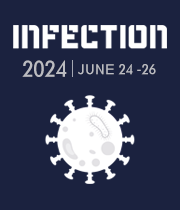HYBRID EVENT: You can participate in person at Rome, Italy or Virtually from your home or work.
Infection 2025
Will be updated soon......
Will be updated soon......
Important Alert:
X Please be aware of fraudulent communication claiming to collect conference fees through unauthorized means, including cloned email addresses and phone numbers. Magnus Group advises all attendees to only process payments through our official event website and report any suspicious activity to [email protected]


Title : Laparoscopic heller myotomy with anterior fundoplication in an elderly male patient with achalasia and coexisting miliary tuberculosis: A case report
Abraham P. Bayan , Capitol Medical Center, Philippines
Background: This case report aims to present the applicability and safety of laparoscopic Heller myotomy with anterior fundoplication in an elderly male patient with achalasia and coexisting military tuberculosis. Although the exact cause of achalasia has not been determined, the [....] » Read More